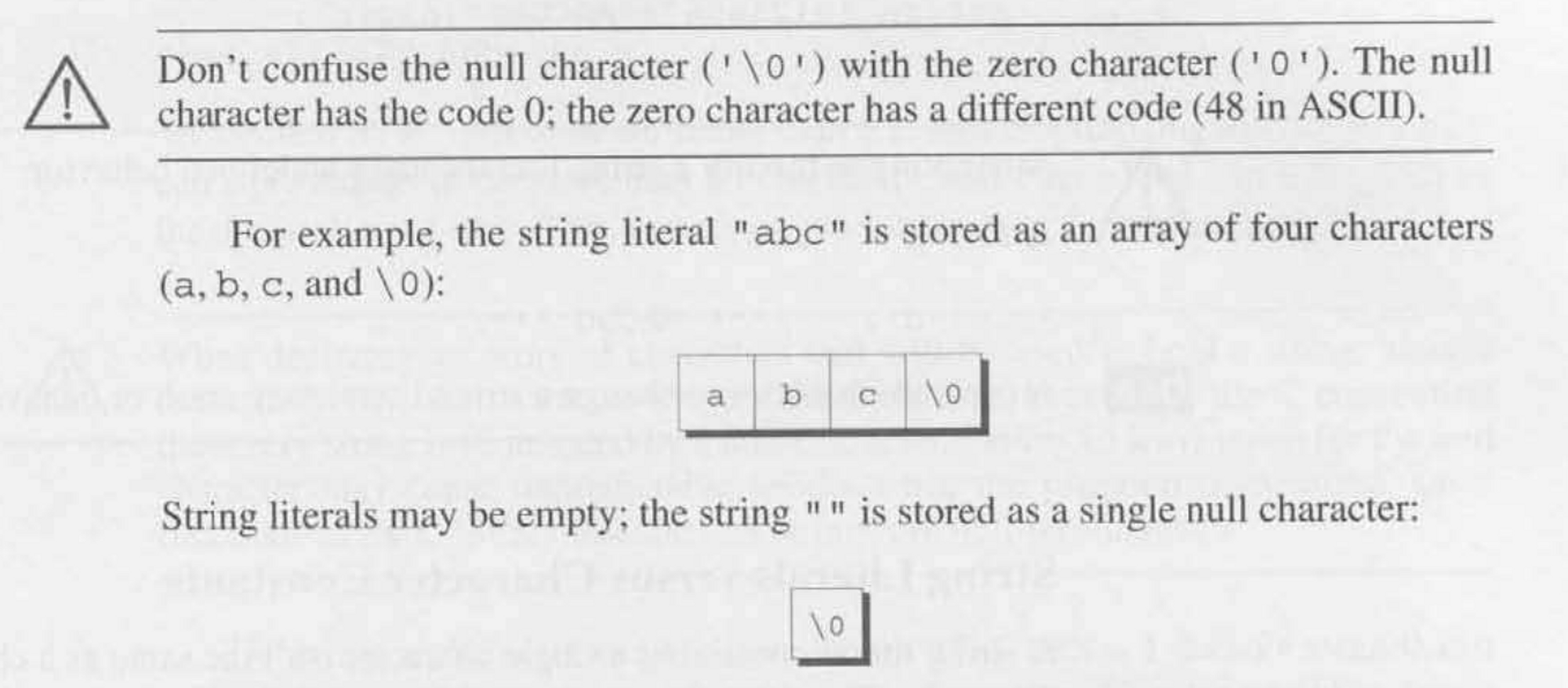Created: 2023-01-10 15:23
Status: #concept
Subject: Programming
Tags: C C Array C String
String Literal
AKA: String Constant, Constant String
A C Array of Characters enclosed in double quotation marks "".
// a single string literal
puts("When you come to a fork in the road, take it.");
// adjacent string literals are concatenated into a single literal
puts("I am string one" " I am string two\n"
"I am string three");
- In C, every C String ends with a Null Terminator character
\0which denotes the end of the string so that functions may properly read strings. - We can print string literals using the
printffunction from the<stdio.h>Library. - They are Nonoverlapping Objects that are allocated when the program is run.
- We reference that read-only memory to access the string literals preprocessed by the Compiler.
Escape Sequences
When using a combination of a backslash character
\ and another specific character, you can "escape" into different characters not usually accessible with the keyboard.
- an exception of this is the
%%character which prints a%.
| Escape sequence | Character represented |
|---|---|
\a |
Alert (bell, alarm) |
\b |
Backspace |
\f |
Form feed (new page) |
\n |
New line (Enter key) |
\r |
Carriage return |
\t |
Horizontal tab |
\v |
Vertical tab |
\' |
Single quotation mark |
\" |
Double quotation mark |
\? |
Question mark |
\\ |
Backslash |
\0 |
Null Terminator |
Operations with String Literals
char *str;
str = "abc"; // pointer address points to the first element of {'a','b','c','\0'}
char ch;
ch = "abc"[1]; // sets ch to 'b'
Common Pitfalls
We cannot edit the individual characters of a String Literal, we have to use a String Variable instead.
char *literal = "I cannot change my letters, only the string I'm pointing to."
char variable[MAX_LEN+1] = "I can index & change my own letters."
What is the difference between
"a" and 'a'? How are Strings treated as in C? How are they internally represented as? How many Bytes do they take up?
-
They are treated as const character Arrays with type
char *. -
When a C compiler encounters a string literal of length
n, it sets asiden+1bytes of memory for the string literal. -
This area of memory will contain the characters in the string, +1 extra character — the Null Terminator
\0- (value of 0 in ASCII while the character '0' is 48)

What operations or Functions can we perform on String Literals?
- Since String Literals are
const charArrays, we can use them wherever C allows achar *Pointer.
int printf(char *format, arg1, arg2, ...);
int scanf(const char *format, ...);
- We can set
char *Pointers point to String Literals.
char *p;
p = "abc"; // pointer address points to the first element of {'a','b','c','\0'}
- We can also subscript them using
[], similar to C Arrays.
char ch;
ch = "abc"[1]; // sets ch to 'b'
References
- C Programming, A Modern Approach, 2nd Edition, Chapter 2.2